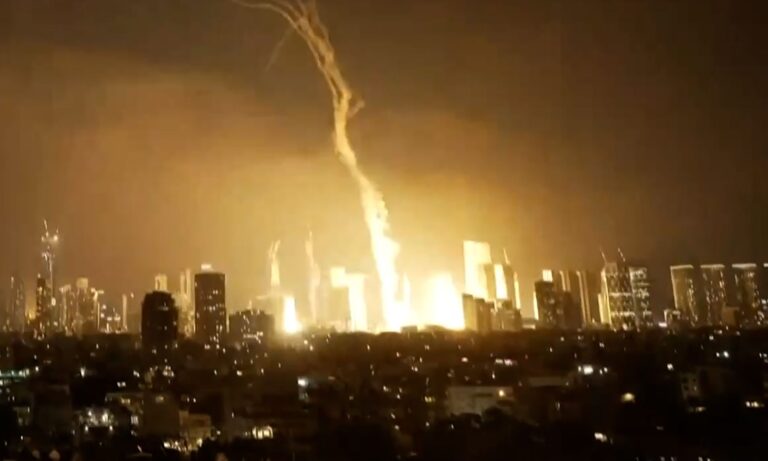Middle East leaders urge de-escalation; US senator warns against new war
Israel Launches Major Strikes on Iran
On June 13th, Israel launched a large-scale military assault on Iran, striking over 300 targets across the country. The attacks hit military, nuclear, and even residential areas, killing at least 78 people — including top generals, civilians, and six Iranian scientists. Among those killed were the head of Iran’s Islamic Revolutionary Guards Corps (IRGC), the head of the mainstream armed forces, and the IRGC’s air force chief. These figures were central to Iran’s military leadership and national defense. In response, Iran declared a state of emergency, grounded all flights, and activated air defense systems nationwide.
UN Security Council Divided
At the United Nations, an emergency Security Council meeting was held, lasting over two hours. Iran’s ambassador called the Israeli attack a “declaration of war,” describing it as barbaric, criminal, and a clear violation of international law. He stressed that the act was premeditated and intended to destabilize the region.
Israel’s ambassador, on the other hand, defended the strikes as an act of self-preservation. He claimed that Iran’s nuclear program had become a threat and that diplomacy had failed to produce results. He did not seek permission but asked the Council to acknowledge that the international community had failed to stop Iran’s nuclear development.
Iran Retaliates with Drones and Missiles
In response, Iran launched dozens of ballistic missiles and drones toward Israel. While most were intercepted, there was visible damage in Tel Aviv and nearby areas. Emergency teams worked to evacuate civilians from damaged buildings. Though casualties were limited due to early shelter warnings, the psychological impact was significant. Tel Aviv, a major economic and political center, is not used to facing such direct attacks. The sheer scale of the response shocked many Israelis.
Why Did Israel Strike?
Behind Israel’s decision to strike lies a longstanding concern: Iran’s nuclear ambitions. Israel has consistently viewed Iran as a direct threat to its security, despite Iran’s repeated claims that it does not seek nuclear weapons. Israeli Prime Minister Benjamin Netanyahu said the operations would continue “as long as necessary.” Among those killed in the initial strikes were high-ranking officials, including the head of the IRGC, Hossein Salami, and Chief of Staff Mohammad Bagheri, as well as key nuclear scientists.
Tensions Rise as Diplomacy Stalls
The timing of Israel’s attack also raised questions. It came just days before planned U.S.-Iran nuclear talks, suggesting that the strikes may have been intended to apply pressure or even derail diplomatic efforts. Former U.S. President Donald Trump claimed he knew about the attack in advance and pledged strong American support for Israel.
US Senator Warns Against Escalation
U.S. Senator Bernie Sanders criticized the Israeli strikes, warning that “the world is more dangerous and unstable” due to the Israeli government’s actions. He emphasized that the U.S. should not be “dragged into another Netanyahu war.” Sanders urged the international community to do everything possible to prevent further escalation and to bring both sides back to the negotiating table.
International Reaction to Israeli Strikes
France voiced support for Israel, standing by its longtime ally amid rising tensions. In contrast, much of the world called for restraint and diplomacy to avoid further escalation.
- France, Russia, and the UK called for an immediate ceasefire to prevent a broader regional war.
- Turkey and Qatar harshly condemned Israel’s actions, labeling them violations of international law.
- Australia issued travel warnings and urged its citizens in the region to shelter in place.
- Gulf states, excluding Bahrain, denounced the attacks and pushed for a diplomatic resolution.
- Saudi Arabia called the strikes a violation of international law and urged the UN to intervene. Its foreign minister also reached out to his Iranian counterpart to call for calm.
Global stock markets fell and oil prices surged after Israel launched strikes on Iran, raising fears of a wider conflict. Investors rushed to safe assets like gold and the dollar, while airline and travel stocks dropped. Military and oil companies saw gains amid concerns over disruptions in the Middle East.


